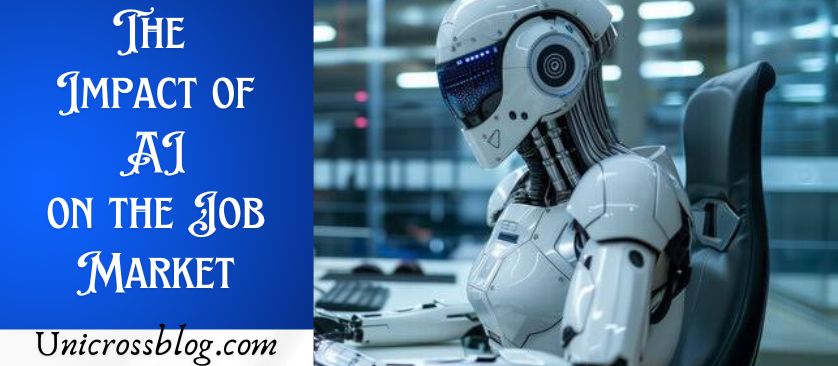As artificial intelligence continues to advance at a rapid pace, you may wonder how it will affect your career prospects and the broader job market.
The integration of AI technologies across industries is poised to dramatically reshape the employment landscape in the coming years. While some fear widespread job losses, others see tremendous opportunities for new roles and increased productivity.
Understanding the potential impacts of AI on various professions and sectors can help you prepare for the changing nature of work. This article will explore the key ways AI is likely to influence jobs and employment, allowing you to navigate this technological shift.

What is AI?
Artificial Intelligence (AI) is a broad field of computer science focused on creating intelligent machines that can perform tasks typically requiring human intelligence. According to Nature, AI encompasses various technologies and systems capable of learning, reasoning, problem-solving, and decision-making.
AI is driving technological advancements across numerous sectors. As reported by Nexford University, AI applications include:
- Autonomous vehicles
- Warehouse robots
- Chatbots and virtual assistants
- Smart home devices
- Robotic surgeries
- Recommendation systems
These innovations are reshaping industries and transforming the way we live and work.
The Impact of AI on the Job Market
1. Automation and Job Displacement
The rise of artificial intelligence is reshaping the global job market at an unprecedented pace. According to the International Monetary Fund (IMF), AI is expected to impact around 40% of global employment, with advanced economies facing greater risks and opportunities. In these nations, approximately 60% of jobs may be affected, with half potentially seeing increased productivity and the other half facing lower labor demand, wages, and job losses.
Certain sectors are particularly vulnerable to AI-driven automation. Finance, media, marketing, and legal services face higher risks due to AI’s capabilities in data analysis, fraud detection, and routine task handling. Jobs involving repetitive or predictable tasks, such as customer service, driving, and research analysis, are more susceptible to automation.
2. New Opportunities and Skill Demands
While AI poses challenges, it also creates new, high-demand jobs for skilled professionals. Roles such as AI prompt engineer, AI ethicist, AI trainer, and machine managers are emerging as crucial for developing, managing, and ensuring the ethical use of AI technologies.
The demand for new skills is increasing, with a focus on meta-skills like analytical thinking, active learning, and complex problem-solving. To thrive in this evolving landscape, professionals should:
- Embrace lifelong learning to continuously develop new skills
- Focus on soft skills like communication and collaboration
- Be agile and adaptable to new technologies
- Specialize in a particular area to increase value to employers
Experts predict that AI may create more jobs than it replaces, particularly in areas requiring human skills like teaching, law, management, and creative fields. The key to success in the AI era is proactivity, adaptability, and continuous learning.
Jobs Most at Risk of Being Replaced by AI
As artificial intelligence continues to advance, certain professions are facing a higher risk of automation. Understanding which jobs are most vulnerable can help workers and industries prepare for the changing landscape.
1. Administrative and Data-Driven Roles
Jobs that involve repetitive tasks and data analysis are particularly susceptible to AI automation. According to a report by Goldman Sachs, AI tools could impact 300 million full-time jobs worldwide. Roles in bookkeeping, basic financial reporting, and data analysis are prime candidates for automation, as AI can perform these tasks more efficiently and accurately than humans.
2. Customer Service and Support
The customer service sector is already experiencing significant changes due to AI. Chatbots and AI-powered assistants are increasingly handling customer inquiries, reducing the need for human agents. By 2025, it’s expected that 80% of customer service organizations will apply generative AI technology, fundamentally altering the landscape of this industry.
3. Media and Content Creation
AI’s ability to read, write, and understand text-based data puts many media jobs at risk. Roles in advertising, content creation, technical writing, and journalism may face challenges as AI tools become more sophisticated in generating written content. However, it’s important to note that while AI can produce content, human creativity and judgment remain crucial for high-quality, nuanced work.
4. Legal and Financial Services
Certain aspects of legal and financial services are also vulnerable to AI automation. Paralegals and legal assistants, who often deal with large volumes of information, may find some of their tasks automated. Similarly, financial analysts and personal financial advisors face competition from AI systems that can analyze data and highlight investment trends more efficiently. However, human expertise remains essential for interpreting results and providing personalized advice.
While AI poses challenges to these professions, it’s crucial to view it as a tool for enhancing productivity rather than a complete replacement for human workers. Adapting to work alongside AI and developing skills that complement automation will be key for professionals in these fields.
READ ALSO: The Best Online Artificial Intelligence Courses in 2024
FAQs
What jobs are most at risk from AI?
As AI technology advances, certain jobs face a higher risk of automation. Customer service representatives, receptionists, accountants, salespeople, and warehouse workers are among the roles most susceptible to AI-driven displacement. Industries like finance, media, marketing, and legal services are particularly vulnerable to AI automation. Jobs involving repetitive tasks or data processing are more likely to be affected.
How is AI creating new job opportunities?
While AI may displace some jobs, it’s also generating new roles and opportunities. AI prompt engineers, AI ethicists, AI trainers, and AI auditors are emerging as in-demand positions. The AI revolution is also driving demand for professionals skilled in data analysis, machine learning, and AI development. These new roles often require a blend of technical expertise and soft skills.
How can workers prepare for an AI-driven job market?
To thrive in an AI-driven job market, workers should:
- Embrace lifelong learning and continuously develop new skills
- Focus on cultivating soft skills like communication and problem-solving
- Stay flexible and adaptable to changing job market demands
- Consider specializing in a particular area to increase value
- Leverage AI tools to enhance productivity and efficiency
Pursuing relevant education, such as a Master’s in Applied Artificial Intelligence, can provide the knowledge and practical experience needed to navigate the evolving landscape.





